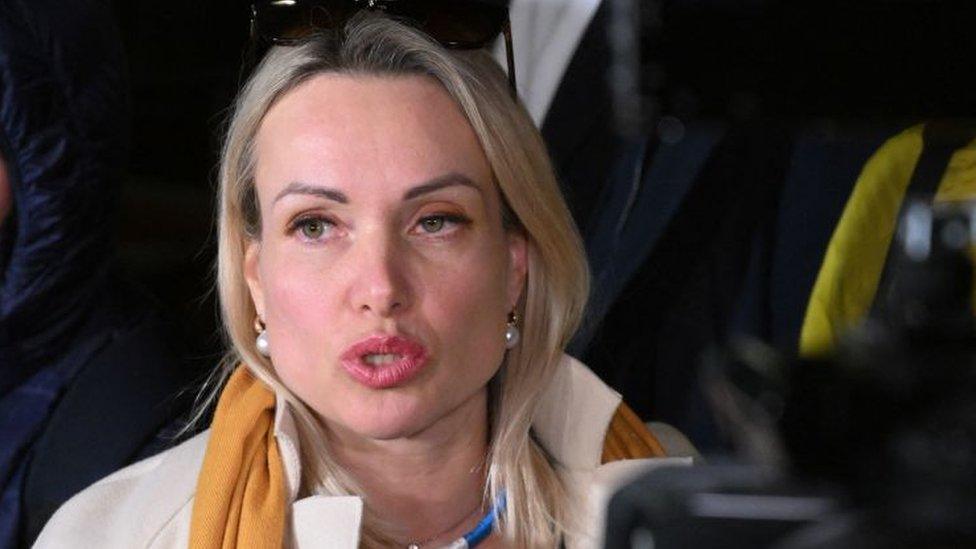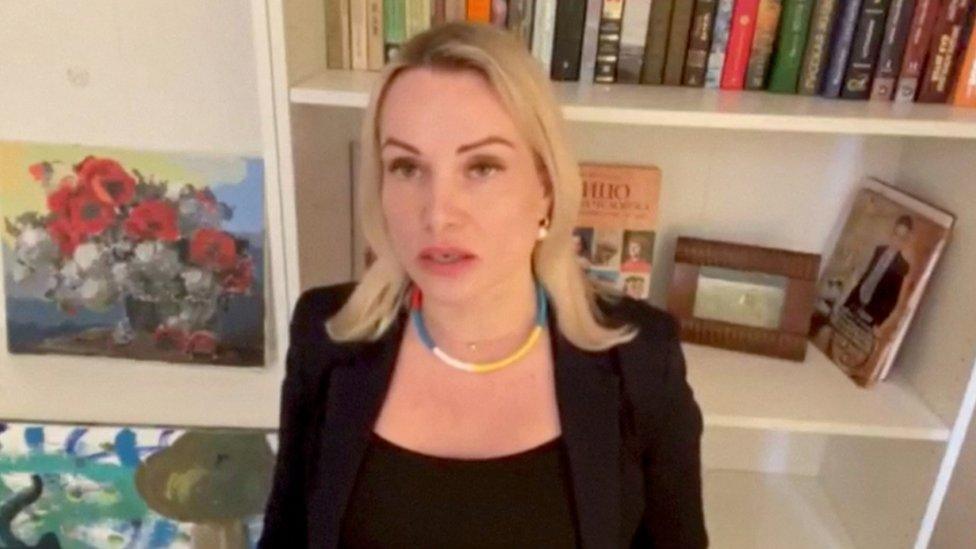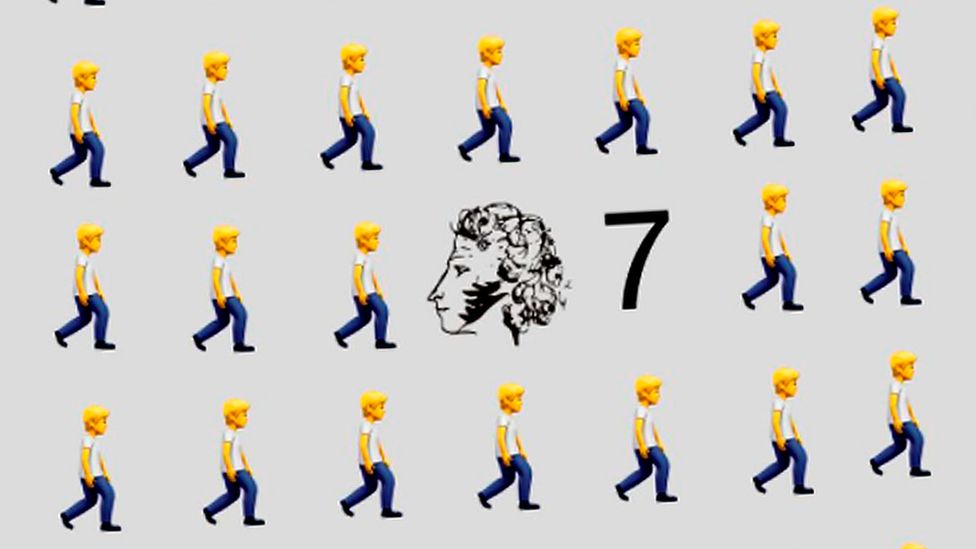Marina Ovsyannikova: Protesting journalist says Russians zombified by propaganda
- Published
WATCH: Marina Ovsyannikova says none of her interrogators thought her TV protest was her idea
A Russian journalist who interrupted a live TV news programme to protest against the war in Ukraine says Russians are "zombified" by propaganda.
Speaking to the BBC, Marina Ovsyannikova said Russians should stop listening to state media coverage.
"I understand it's very hard... to find alternative information, but you need to try to look for it," she said.
Ms Ovsyannikova, an editor at state-controlled Channel 1, was detained after her protest on Monday.
She ran onto the set of one of Russia's most-watched news programmes, Vremya, holding a sign reading: "No war, stop the war, don't believe the propaganda, they are lying to you here."
She could also be heard repeating the words "no war, stop the war".
"I was aware that if I went to protest in [Moscow's] central square I would be arrested like everyone else and thrown into a police van and be put on trial," Ms Ovsyannikova said on Thursday.
"Half the poster was in Russian, half the poster was in English. I really wanted to show the Western audience that some Russians are against war," she said.
"I feel of course some responsibility lying on me. I was an ordinary cog in the propaganda machine. Until the very last moment I didn't think about it too much," she said.
Watch: Anti-war demonstrator disrupts Russia's state TV news
Ms Ovsyannikova also responded to various allegations in Russian media about her motivation for staging the protest. "There are lots of conspiracy theories building up about me," she said.
"That's why I had to explain to the world what really happened, the fact that I am just a normal Russian woman, but I could not remain on the sidelines."

War in Ukraine: More coverage

Before her protest she recorded a video in which she said she was ashamed to work for what she called Kremlin propaganda.
The journalist said she was detained and questioned by police for 14 hours, and fined 30,000 roubles ($280; £210) for the video. The authorities had been convinced she had been acting on someone else's behalf, she said.
"Nobody believed it was my personal decision. They suggested it could be conflict at work, relatives who were angry about Ukraine or that I was doing it for Western special services."
"They couldn't believe that I had so many objections to the government that I could not stay silent," she said.
Russian state television news has long been controlled by the Kremlin and independent viewpoints are rare on all the major channels.
It is also unusual for employees of state-controlled news organisations to express an opinion that differs from the official Kremlin position.
But since the war in Ukraine began, a number of journalists have resigned from top Russian TV channels: Zhanna Agalakova from Channel 1, and Lilia Gildeyeva and Vadim Glusker from NTV.
State-controlled Russian media refer to the war as a "special military operation" and paint Ukraine as the aggressor, describing Ukraine's elected government as neo-Nazis.
Related topics
- Published15 March 2022

- Published15 March 2022

- Published10 March 2022
